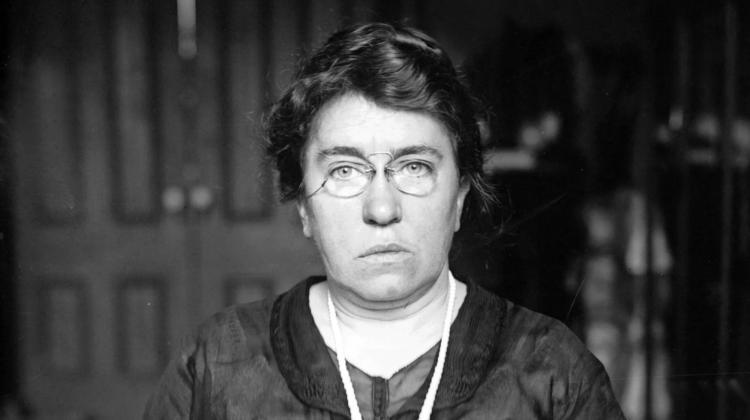Emma Goldman: ‘Revolution is Indeed a Violent Process’
The Left’s idolatry of violence is nothing new.

|
Getting your Trinity Audio player ready...
|
The left adores violence. This is increasingly clear even in the U.S., where the political process throughout the history of the nation has been generally peaceful and orderly (which is not to say that there haven’t been assassinations and the like). Leftists leaders are now open about their violent aspirations: “Never before in my life have I called for mass protests, for mobilization, for disruption — but I am now,” said far-left Illinois Gov. JB Pritzker in late April. “These Republicans cannot know a moment of peace.”
That was after Rep. Kweisi Mfume (D-Victimhood) said in February: “This will be a congressional fight, a constitutional fight, a legal fight, and on days like this a street fight, yes we will stand.” And that was not long after House Minority Leader Hakeem Jeffries (D-Hey, I’m a Victim Too) said this of the “extreme MAGA Republican agenda”: “We are going to fight it legislatively. We are going to fight it in the courts. We’re going to fight it in the streets.”
This is nothing new for the left. When the anarchist Leon Czolgosz shot President William McKinley on Sept. 6, 1901 (McKinley died eight days later), the renowned activist Emma Goldman applauded his act. This was no surprise; it was after hearing Goldman (who actually advocated the assassination of rulers she thought unjust) speak about the injustices of American society that Czolgosz determined that “I would have to do something heroic for the cause I loved.” He traveled to Buffalo, where McKinley was appearing at the Pan-American Exposition, to kill the president.
Upon learning of his act, Emma Goldman suggested that the assassination was justified:
“Some people have hastily said that Czolgosz’s act was foolish and will check the growth of progress. Those worthy people are wrong in forming hasty conclusions. What results the act of September 6 will have no one can say; one thing, however, is certain: he has wounded government in its most vital spot.”
This the-end-justifies-the-means rhetoric would become a staple of leftist discourse, particularly in the twenty-first century, when the left in America grew more violent than it ever had before.
Republican Party bosses, notably McKinley’s chief backer, Ohio Senator and Republican National Committee Chairman Mark Hanna, thought Vice President Theodore Roosevelt was a reckless radical. Hanna once exclaimed to a roomful of party leaders: “Don’t any of you realize there’s only one life between this madman and the presidency?” When Leon Czolgosz showed by killing McKinley how important such concerns really were, one prominent Republican is said to have exclaimed, “Now look, that damned cowboy is president of the United States.”
The “damned cowboy” was a “progressive,” equating progress with the steady expansion of government control over ever more aspects of citizens’ lives. As charming and ebullient as he was, Theodore Roosevelt was also one of the founding figures of today’s gargantuan and out-of-control federal state. Democrat party leader and thrice-failed presidential candidate William Jennings Bryan charged Roosevelt and the “progressives” with stealing ideas from the Democrat program. Roosevelt responded cheerfully: “So I have. That is quite true. I have taken every one of them except those suited for the inmates of lunatic asylums.” And some of those as well. In the pursuit of the larger goal of putting America on a leftward path, the assassination of McKinley achieved its goal.
Emma Goldman, meanwhile, never changed course. In 1923, she wrote:
The argument that destruction and terror are part of revolution I do not dispute. I know that in the past every great political and social change necessitated violence. … Black slavery might still be a legalized institution in the United States but for the militant spirit of the John Browns. I have never denied that violence is inevitable, nor do I gainsay it now. Yet it is one thing to employ violence in combat, as a means of defense. It is quite another thing to make a principle of terrorism, to institutionalize it, to assign it the most vital place in the social struggle. Such terrorism begets counter-revolution and in turn itself becomes counter-revolutionary.
Would Pritzker, Jeffries and Mfume disagree? It is not at all clear at this point that they would. As the late, great David Horowitz observed, “Inside every progressive is a totalitarian screaming to get out.” They’re getting out now, in large numbers.

